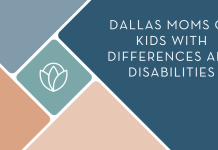Parents violate their kids’ privacy all the time.
Yes, it’s true.
We are the first generation of parents to raise kids in the age of social media, and our kids are the first generation to grow up having their entire childhood shared online. We share their milestones, big and small. Sonogram. Birth. First tooth. First day of school. Prom. Graduation. We share their (and our) challenges. Potty training. Sassy-talking toddlers (and teenagers). Medical issues. School issues. We share information about who they are. Their birthday. Where they go to school. Their sports team. Their friends. Their current obsessions. Their dog’s name.
We freely offer up information about our kids for the sake of a few likes and (hopefully) positive comments.
A random encounter with an old high school classmate a couple of years ago opened my eyes to just how much I have shared about my kids on Facebook and the implications on their privacy.
We ran into each other at the mall and were able to recognize each other thanks to Facebook. She’s probably a perfectly decent person, but not someone I felt the need (or desire) to talk to in the almost 30 years since high school graduation. To be honest, I probably didn’t talk to her all that much in high school.
Despite the tangential nature of our relationship, she knew an incredible amount of information about my kids. Again, thanks to what I’d shared on Facebook.
She made a joke about my daughter going to a rival high school. She asked how my daughter was dealing with her dyslexia in school. She raved about my daughter’s homecoming dance dress.
It dawned on me just how much of my kids’ life I had shared with random people.
Will my kids have any expectation of privacy after having their childhoods shared on Facebook? Have I put my kids at risk for identity theft or someone taking advantage of them (or worse)?
In the two years since my encounter with that high school classmate, I’ve thought a lot about the privacy implications for my children from sharing information about them on social media. I’ve researched the issue. I’ve talked to other parents.
 5 Internet Safety Tips
5 Internet Safety Tips
Consider your audience.
The overwhelming majority of your Facebook “friends” are not real friends.
One would think with our sharing of details about ourselves to hundreds of friends on Facebook or followers on Instagram or Twitter, we humans would have increased our capacity for relationships.
The science says no. Study after study confirms most people still only have 5 intimate friends, 15 close friends, and 150 acquaintances.
Assuming you are like the average Facebook user with 338 friends, when you share information about your kids on social media, chances are the majority of the people you are sharing that information with aren’t even acquaintances, much less actual friends.
So before post something about your kid, ask yourself if this is information you would share with people who are essentially strangers. That first day of school photo with your kid wearing their uniform…do you want strangers knowing where your kid goes to school?
Information about your kids belongs to them, not you.
We parents love to talk about our kids. We love them, we’re proud of them, and we’re challenged by them. Our kids’ life stories are so intertwined with our own it’s sometimes hard to think of them as being independent.
But they are. And so too are their life stories.
Information you share about your kids doesn’t belong to you—it belongs to them. And their present and future selves might not want that information shared.
Your child’s struggle with a serious medical issue? While it’s great to get support and encouragement from other parents after you share an update, a future insurer could use this information to deny your child coverage.
Your difficulties in getting your son to complete his college applications? A future employer could infer from this information that he’s lazy.
You should only share information about your kid if the benefit of sharing the information outweighs the potential harm of the information. In other words, you should have a really good reason for violating your kid’s privacy.
Ask your child’s permission before posting.
Ask your child’s permission before posting ANYTHING about them online, including photos, funny sayings, accomplishments, and challenges.
Your child should know that privacy is something they should expect.
I do this with all of my kids, even the youngest, who is seven. While she may not fully grasp the concept, she knows that I respect her privacy and she should always demand that others do as well.
Remember the Golden Rule
Remember the Golden Rule when sharing information about your kid online.
Is the information you are sharing about your kid something you would want shared about yourself?
Would you want the details of your love life in high school shared with the rest of the world? No? Then don’t share your kid’s.
Ask yourself, is there anyone in the world, now or in the future, who should NOT know this information about your child? Bullies, employers, college admission staff, and possible romantic interests? Always assume they will Google your child and find the information.
Privacy needs to be constantly monitored.
Finally, make sure you have done everything possible to protect the information you share (but remember that nothing is ever 100% secure).
Regularly check the privacy settings on your social media accounts. Set up notifications when your child’s name appears in a Google search result.
If you’re posting information about a challenge your child is experiencing, consider posting anonymously.













